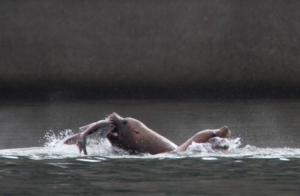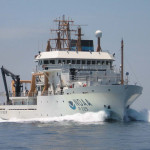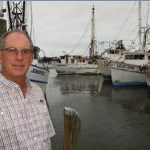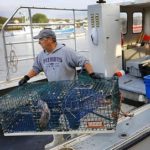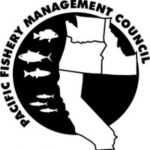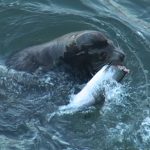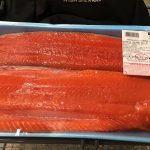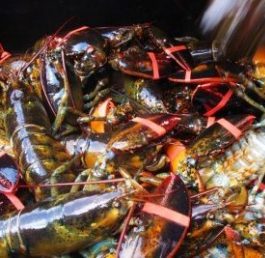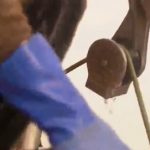Tag Archives: Atlantic mackerel
NOAA Fisheries Announces Closure of Commercial Atlantic Mackerel Fishery
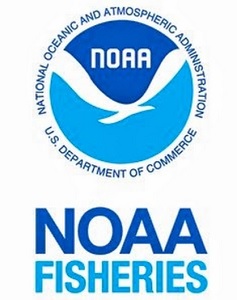 NOAA Fisheries has projected that 80 percent of the Atlantic mackerel domestic annual harvest (DAH) was harvested by November 29, 2024. Therefore, effective 0001 local time on December 6, 2024, limited access mackerel vessels may not take and retain, possess, or land more than 10,000 lb of mackerel per trip at any time, and may only land mackerel once per calendar day, through 24:00 hr local time on December 31, 2024. Additionally, open access mackerel vessels may not take and retain, possess, or land more than 2,500 lb. of mackerel per trip at any time, and may only land mackerel once per calendar day, through 24:00 hr local time on December 31, 2024. more, >>CLICK TO READ<< 14:12
NOAA Fisheries has projected that 80 percent of the Atlantic mackerel domestic annual harvest (DAH) was harvested by November 29, 2024. Therefore, effective 0001 local time on December 6, 2024, limited access mackerel vessels may not take and retain, possess, or land more than 10,000 lb of mackerel per trip at any time, and may only land mackerel once per calendar day, through 24:00 hr local time on December 31, 2024. Additionally, open access mackerel vessels may not take and retain, possess, or land more than 2,500 lb. of mackerel per trip at any time, and may only land mackerel once per calendar day, through 24:00 hr local time on December 31, 2024. more, >>CLICK TO READ<< 14:12
Predators take big bite out of declining Atlantic mackerel population
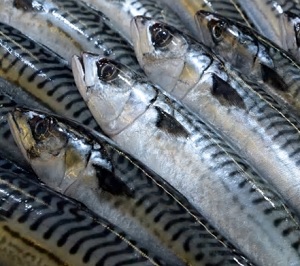 Predators ate at least twice as many Atlantic mackerel as commercial fishery landings in the decade leading up to Canada’s region-wide moratorium, according to new research by Canadian and American scientists. The study also found seals are a major predator, lending credence to what many fishermen have long claimed. The modelling study was published this month by the federal Fisheries Department and the Canadian Science Advisory Secretariat. The top predators were gannets, grey seals, dogfish and bluefin tuna. In the most conservative estimate, predators removed between 21,000 and 29,000 tonnes annually between 2012 and 2021 — at least two times greater than Canadian commercial landings reported as 11,000 tonnes per year. more, >>CLICK TO READ<< 12:26
Predators ate at least twice as many Atlantic mackerel as commercial fishery landings in the decade leading up to Canada’s region-wide moratorium, according to new research by Canadian and American scientists. The study also found seals are a major predator, lending credence to what many fishermen have long claimed. The modelling study was published this month by the federal Fisheries Department and the Canadian Science Advisory Secretariat. The top predators were gannets, grey seals, dogfish and bluefin tuna. In the most conservative estimate, predators removed between 21,000 and 29,000 tonnes annually between 2012 and 2021 — at least two times greater than Canadian commercial landings reported as 11,000 tonnes per year. more, >>CLICK TO READ<< 12:26

Trudeau Government Continues to Mismanage the Fishing Industry While Fish Harvesters and the Processing Industry Lose Opportunity
Conservative Shadow Minister for Fisheries, Oceans and the Canadian Coast Guard, Clifford Small, released the following statement after the Trudeau government refused to increase quotas for Northern Cod and the Atlantic Mackerel moratorium continues: “Trudeau’s Fisheries Minister, Joyce Murray, has once again ignored fishing industry stakeholders and harvesters by refusing to modestly increase fish quotas. A full survey assessment of fish stocks in Newfoundland has not been completed since 2019 and now because the Liberals failed to live up to their multiple promises to the industry, working people who make their living in the fishing industry will suffer. “The Trudeau government has failed to live up to its commitments on fisheries science and they are punishing working people without a second thought as a result. >click to continue< 16:42

‘Unacceptable sacrifice’ – Ottawa extends mackerel moratorium when U.S. continues to fish same stock
Seaward Enterprises Association of Newfoundland and Labrador (SEA-NL) says a decision by federal Fisheries and Oceans Minister Joyce Murray to extend the moratorium on mackerel fishing in Canadian waters is an unacceptable sacrifice when the United States continues to fish the same stock. “How foolish is that?” questions Ryan Cleary, SEA-NL’s Executive Director. “DFO science is questionable at best, and now without mackerel fishermen on the water again this year there will be even less data.” The federal Minister announced Wednesday a continuation of the 2022 closure of commercial and bait fishing for mackerel in Atlantic Canada and Quebec for the 2023 season. Fishing mackerel for food and ceremonial fisheries will remain open. >click to read< 15:55
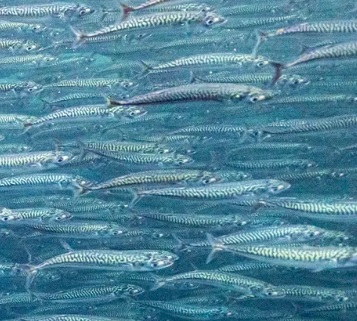
‘The people’s fish’: Atlantic mackerel stocks have collapsed – can a moratorium bring them back?
Canada’s Atlantic mackerel population is a shadow of what it once was, and its decline threatens the well-being of the people who depend on it. Mackerel supports one of Atlantic Canada’s top recreational fisheries, and one of its oldest commercial fisheries. The fish is also used for bait, and it has an important place in Indigenous cultures. The same migratory stock supports recreational and commercial fisheries in the U.S. Last March, the federal Department of Fisheries and Oceans closed Canada’s commercial and bait mackerel fisheries for one year and placed daily personal limits on the recreational fishery, to give the population time to rebound. But the U.S. fishery remains open, albeit with a reduced quota. Next week, federal Fisheries Minister Joyce Murray will decide whether to reopen the Canadian fishery. The DFO’s latest studies have found no sign of recovery in the mackerel stock. Photos, >click to read< 13:09

Atlantic mackerel population continues to decline a year after fishery moratorium
The Atlantic mackerel population is continuing to decline after a decade of falling numbers, according to a federal assessment presented to industry and environmental groups in Halifax this week. According to the 2022 assessment, mackerel stock remains in the “critical zone” — where serious harm is occurring — and the average number of fish reaching spawning age is only 27 per cent of what it was between 1969 and 2011. “The amount of young fish entering your population has been rather low in the last couple of years. That’s concerning,” Elisabeth Van Beveren, a biologist with the federal department of Fisheries and Oceans, said. In Newfoundland and Labrador, seafood companies and fishermen have claimed for years that DFO has it all wrong because mackerel are plentiful around their coast. >click to read< 15:32

SEA-NL calls on Ottawa to lift mackerel moratorium; at least match U.S. quota for 2023
Seaward Enterprises Association of Newfoundland and Labrador is calling on Fisheries and Oceans to lift the moratorium on Atlantic mackerel in 2023 and set a quota at least equal to the total allowable catch set this week by the United States. “It’s a senseless sacrifice for Canadian mackerel fishermen to remain under a moratorium when their U.S. cousins have never stopped fishing,” says Ryan Cleary, SEA-NL’s Executive Director. The CBC reports that earlier this week the United States set the 2023 TAC for Atlantic mackerel at 3,639 tonnes, a 27% decrease from that country’s 2022 quota of 4,963 tonnes. Meanwhile, Canada slapped a moratorium on the same Atlantic mackerel stock last year, and Ottawa has yet to announced whether there will be a commercial fishery this year. >click to read the rest< 15:33
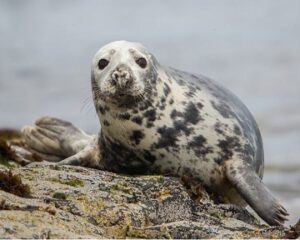
Why Canada shuttered some mackerel and spring herring fisheries in Québec and Atlantic Canada
The announcement by the Department of Fisheries and Oceans to suspend fishing for Atlantic mackerel and spring herring in the southern Gulf of St. Lawrence made waves as the fishing season opened. This decision will have repercussions on the fishing industry at several levels since these species are fished not only for commercial purposes, but are also used as bait in the lobster, snow crab and Atlantic halibut fisheries. The latest stock assessment of Atlantic mackerel and spring herring in the southern Gulf of St. Lawrence revealed high mortality rates among adult fish. In addition to high fishing pressure, the natural mortality of fish by predation also increased rapidly, The grey seal, now 16 times more abundant than in the 1960s, is the main predator of herring. >click to read< 18:38

Nova Scotia: Mackerel closure causes bait concerns as fishermen prepare for lobster season
Minister of Fisheries and Oceans (DFO) Joyce Murray announced on March 30 that there would be no directed commercial or bait fishing for southern gulf spring herring and a closure of the Atlantic mackerel commercial and bait fisheries this year in Atlantic Canada and Quebec. Guysborough County Inshore Fisherman’s Association Manager Ginny Boudreau’s first concern was about what was not covered in the DFO news release: loss of licences and lack of compensation. Those licenses have essentially been taken away from them…How you can just take thousands of licences out of the commercial fishery and not even a mention of that in the news release?… that’s huge,” >click to read< 08:41
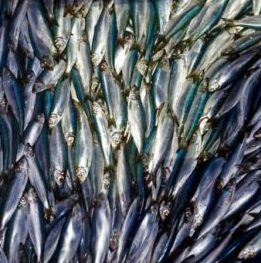
Bait Crisis: Lobstermen worry fishery closures will create bait supply issues
Last week, Fisheries and Oceans Canada shut down commercial harvesting of herring in the Gulf of St. Lawrence and Atlantic mackerel in Atlantic Canada and Quebec amid dwindling stocks. The two species are important sources of bait for the lobster industry. Some Island fishermen say they were caught off guard by the announcement as they prepare for setting day about a month from now. “It’s tough on fishermen because … we need the bait to fish lobster,” said Mallory Harris, who fishes in North Lake. Other fishermen said they’re already seeing the price of bait for lobster traps increase. >click to read< 08:14

Where Did All the Mackerel Go?
Summer in Atlantic Canada can be unreliable, emerging reluctantly from the damp cold of spring. But a sure sign of its arrival is the sudden presence of Atlantic Mackerel, Slipping away is already something of a mackerel specialty as they dart from their winter habitat, in the deep water along the continental shelf stretching from Nova Scotia to North Carolina, to their inshore summer spawning grounds. For the so-called northern contingent, from which the Canadian catch is derived, these spawning grounds are in the Gulf of Saint Lawrence; for their southern counterparts, summer is spent on the mid-Atlantic coast up to the Gulf of Maine. >click to read< 09:55

Canada cuts Atlantic mackerel quota in half to ‘rebuild stock’, to be released in two phases to ensure access
Canada has slashed the quota in half for Atlantic mackerel, from 8,000 tonnes last year to 4,000 tonnes this year. “This is a difficult decision that has economic impacts on commercial harvesters and their communities, but the science is clear: stronger actions need to be taken to rebuild the Atlantic mackerel stock,” said Federal Fisheries and Oceans Minister Bernadette Jordan in a news release Friday. That will help ensure fishermen in Newfoundland, where mackerel arrive later in the year, get access to some quota. >click to read< 08:03

Atlantic Canada mackerel quota cut by 20 per cent – Move will reduce a key source of bait
Canada’s Department of Fisheries and Oceans is cutting the Atlantic mackerel quota by 20 per cent in 2019, after a recent assessment concluded the stock remains in the “critical zone.” The quota cut will reduce a key source of bait in the region’s lucrative lobster fishery. In a notice sent to industry, the department said the region-wide total allowable catch will drop from 10,000 tonnes to 8,000 tonnes. >click to read<12:20
Mid-Atlantic Council to Hold Public Hearings for Squid Amendment
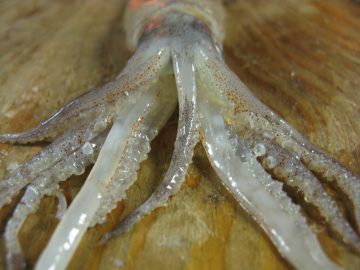 The Mid-Atlantic Fishery Management Council will hold nine public hearings in April and May 2017 to solicit public input on the Squid Amendment to the Atlantic Mackerel, Squid, and Butterfish Fishery Management Plan. The Council is also soliciting written comments on the amendment through 11:59 pm on May 18, 2017.The amendment considers measures to reduce latent longfin and Illex squid permits. Currently, a relatively small portion of vessels with limited access (“moratorium”) squid permits account for the majority of landings in most years. The Council is concerned that activation of latent permits in the squid fisheries could lead to excessive fishing effort, potentially resulting in shortened seasons and increased catch of non-target species. The amendment also considers measures to modify the management of longfin squid during Trimester 2 (May-August). The Council is considering this action because there is concern that the productivity of the longfin squid stock may be negatively impacted if excessive fishing in Trimester 2 does not allow sufficient spawning and/or successful egg hatching from egg mops. Locations of the hearings with time and date, public comment info, Click Here 17:54
The Mid-Atlantic Fishery Management Council will hold nine public hearings in April and May 2017 to solicit public input on the Squid Amendment to the Atlantic Mackerel, Squid, and Butterfish Fishery Management Plan. The Council is also soliciting written comments on the amendment through 11:59 pm on May 18, 2017.The amendment considers measures to reduce latent longfin and Illex squid permits. Currently, a relatively small portion of vessels with limited access (“moratorium”) squid permits account for the majority of landings in most years. The Council is concerned that activation of latent permits in the squid fisheries could lead to excessive fishing effort, potentially resulting in shortened seasons and increased catch of non-target species. The amendment also considers measures to modify the management of longfin squid during Trimester 2 (May-August). The Council is considering this action because there is concern that the productivity of the longfin squid stock may be negatively impacted if excessive fishing in Trimester 2 does not allow sufficient spawning and/or successful egg hatching from egg mops. Locations of the hearings with time and date, public comment info, Click Here 17:54
NOAA Announces Partial Approval of Amendment 14 to the Atlantic Mackerel, Squid, and Butterfish Fishery Management Plan
 On November 7, 2013, NOAA – National Marine Fisheries Service, on behalf of the Secretary of Commerce, partially approved Amendment 14 to the Atlantic Mackerel, Squid and Butterfish Fishery Management Plan. For the rundown, click here 21:24
On November 7, 2013, NOAA – National Marine Fisheries Service, on behalf of the Secretary of Commerce, partially approved Amendment 14 to the Atlantic Mackerel, Squid and Butterfish Fishery Management Plan. For the rundown, click here 21:24
National Marine Fisheries Service: Revisions Proposed for Squid, Mackerel, Butterfish Fishery Management Plan

Today, at the recommendation of the Mid-Atlantic Fishery Management Council, NOAA /NMFS is proposing a number of revisions to the Atlantic mackerel, squid, and butterfish fishery management plan to improve the catch monitoring and reduce river herring and shad bycatch through Amendment 14. read more 12:36
Panel eyes sea coral protection in mid-Atlantic – Atlantic mackerel, squid and butterfish fishery’s could be become jeopardized

Lars Axelsson, a commercial fisherman from New Jersey, who serves on a council advisory panel, said some of the proposed alternatives could virtually put an end to squid fishing. He noted that he already shares information with other fishermen about areas of “bad bottom” and snags that could damage their fragile and expensive nets. more@thesentinel

































